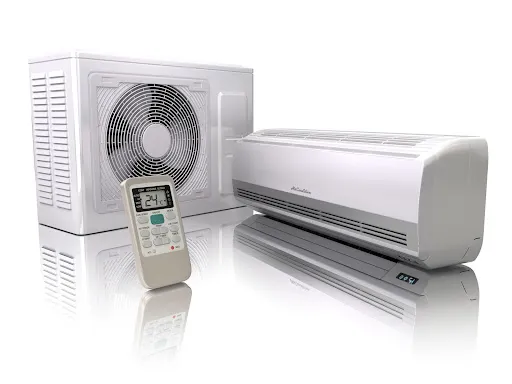Choosing the right cooling system for your home or workplace is no petty decision; it directly affects personal comfort and energy efficiency. This article aims to shed light on two prominent cooling systems – Air Conditioning (AC) and Evaporative Cooling (EC). It delves into their workings, energy efficiency, cost implications, health benefits, and their suitability based on climatic conditions.
Table of Contents
Understanding the Basics: Air Conditioning Vs. Evaporative Cooling
Air conditioning units employ refrigerants to extract heat and moisture from the air, creating a cooler environment indoors. The absorbed heat is expelled outside, resulting in a comfortable room temperature.
Evaporative cooling, on the other hand, utilises a completely different principle. It leverages the natural cooling effect of evaporation, where water is converted into a vapour state, absorbing heat from the surrounding air in the process. Hence, cooler air is dispatched to the environment.
One must also take into account the men’s health magazineclimatic conditions while choosing between these two systems. It’s crucial to understand these rudimentary details to make an informed, effective decision regarding your cooling requirements.
Evaluating Energy Efficiency: Which System Uses Less Power?
When it comes to energy consumption, evaporative coolers have an upper hand as they consume nearly half the power required by air conditioning units. This disparity in power consumption significantly affects utility bills, with the potential of substantial savings with the former.
Moreover, from an environmental perspective, AC units produce higher carbon emissions due to high power consumption, whereas EC units come forth as more eco-friendly.
Energy efficiency doesn’t quite stop at cost-saving and minimise environmental impact; it also contributes significantly to comfort. In essence, an energy-efficient unit offers a consistent and constant cooling effect without added noise or disturbance.
Exploring Cost Implications: Initial Investment and Ongoing Costs
The initial cost of purchasing an air conditioning unit is generally higher than an evaporative cooler. However, one mustn’t be hasty and just consider this upfront expenditure.
Maintenance costs also play a pivotal role in the total cost assessment. Here again, evaporative coolers generally come out on top, being relatively simpler machines with fewer parts – translating to lower service costs.
Furthermore, quantifying energy costs and projected savings over time completes the cost evaluation. Managing these cost factors appropriately can directly influence one’s comfort-enhancement decision.
Focusing on Air Quality: Are There Health Benefits?
Right off the bat, evaporative coolers augment indoor air quality by maintaining a steady circulation of fresh and naturally cooled air. This is a sharp contrast to AC units, which essentially recirculate the same indoor air instead of replacing it with fresh air.
In terms of potential health benefits, proper humidification provided by EC units can help in alleviating respiratory conditions. However, if not maintained well, both systems can harbour allergens or mould, compromising their health benefits. Hence, the correlation between indoor air quality and overall comfort is quite profound.
Assessing Suitability: Is One System Better for Certain Climates?
The effectiveness of evaporative cooling versus refrigerated AC is largely determined by local climate. Ideally, evaporative coolers perform extremely well in dry and hot climates where the process of evaporation can be fully utilised. On the contrary, in humid areas where the air is already saturated with moisture, AC units would be a better choice.
These insights stem from various case studies of both cooling systems operating under different climatic conditions. By choosing the correct system for the climate, one can significantly enhance comfort levels.
Conclusion
Drawing the line, the choice between air conditioning and evaporative cooling involves a careful appraisal of several factors including energy efficiency, cost, health implications, and climatic suitability. This article has endeavoured to guide readers in their decision by offering an unbiased examination of both cooling systems.
Remember, the ultimate objective is to enhance comfort, and that should remain paramount in your decision-making process. For more information and assistance, consider reaching out to HVAC professionals who could offer personalised guidance based on your unique requirements. They can help you ensure that you’re making not just a good decision, but the best one for your needs.













